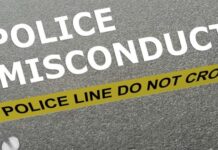Apple Inc. (NASDAQ:AAPL) decided to rehire a top expert in practical cryptography to boost further the security features for its consumer products.
Jon Callas, the co-founder of several well-respected companies offering encryption software solutions such as PGP Corporation, Silent Circle and Blackphone, rejoined Apple in May, according to Reuters based on information from the tech giant’s spokesman.
In 2009 to 2011, Callas designed the encryption system for the Macintosh computer to protect the data stored in it. He also worked for Apple during the 1990s. The tech giant’s spokesman did not reveal any detail regarding Callas’ new role.
Phil Dunkelberger, the president and CEO of Nok Nok Labs and former CEO of PGP Corp., described Callas as “someone who has deep appreciation of all sides of the story.”
Apple’s decision to bring him back showed that it will never give in to the pressure of governments to compromise the encryption of its devices. His return also indicates that encryption will become a mainstream.
Silent Circle protects phone calls from eavesdroppers while Blackphone is selling a mobile phone that is very difficult to hack. Both companies are highly-recognized for their products.
“It has always been Jon’s dream to bring the most secure products possible to a bigger population,” said Mike Janke, who co-founded Silent Circle with Callas.
Callas opposed law enforcement compelling companies circumvent the encryption of their products. However, he is willing to support a compromise proposal wherein law enforcement must have a court order to take advantage of undisclosed software vulnerabilities to hack into tech systems. Law enforcement should also reveal the vulnerabilities so that tech companies could fix it.
Apple will never compromise encryption
The tech giant previously stated that it would continue to strengthen the security features of its products to protect the privacy of its customers.
Apple CEO Tim Cook said they will not compromise encryption during interview with CBS’ Charlie Rose in December last year. Cook said, “There should be no trade-off between national security and privacy. We are the most developed country in the world, should we not enjoy both?”
The tech giant strongly opposed the demand of the Federal Bureau of Investigation (FBI) to circumvent the security features of the iPhones used by a terrorist and a drug dealer in the cases in San Bernardino, California and Brooklyn, New York, respectively.
The U.S. Department of Justice (DOJ) requested federal judges in both cases to compel Apple to unlock the iPhones. The DOJ eventually dropped its demand after the FBI successfully unlocked the iPhones using a new method acquired from a third-party.
The FBI and other law enforcement agencies in the United States maintain their position that technology companies must help the government in finding criminals. Apple and other tech companies argued that requiring them to bypass their encryption would undermine their products and will become more vulnerable to malicious hackers.
Apple recommended the creation of a commission or a panel of experts on intelligence, technology, and civil liberties to help resolve on the standoff in encryption.
Meanwhile a Senate committee is considering a legislation that would require companies to help law enforcement agencies bypass encryption.









